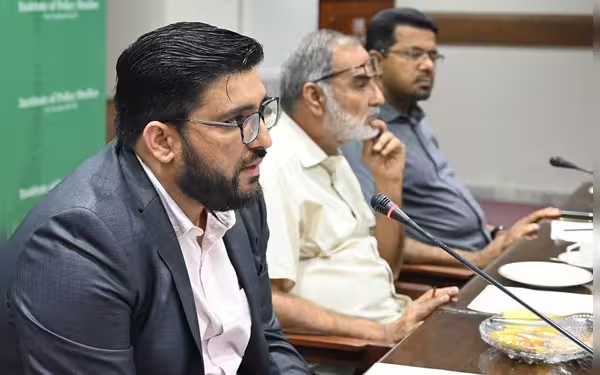Thursday, July 4, 2024 06:23 PM
Dr. Abdul Samad Sheds Light on Muslim Philanthropy
- American Muslims donate $4.3 billion annually towards charitable causes
- Muslims face obstacles due to anti-Muslim sentiments and Islamophobia
- Growing movement in the US shows increased sympathy towards Muslims
 Image Credits: thefinancialdaily
Image Credits: thefinancialdailyDr. Abdul Samad highlights the significant philanthropic contributions of American Muslims, the challenges they face due to anti-Muslim sentiments, and the global efforts to combat Islamophobia through collaborative initiatives.
Prejudice against Muslims in Western countries is largely fueled by biased media representation and stereotyping, perpetuating negative perceptions. This bias is further amplified by political institutions for their own gain, leading to discriminatory attitudes.
Dr Abdul Samad, from the Muslim Philanthropy Initiative at Indiana University, sheds light on the significant philanthropic contributions made by American Muslims. Despite facing socio-economic challenges, they donate approximately $4.3 billion annually towards charitable causes, including places of worship, overseas relief, civil rights, domestic relief, and Covid-19 support.
Dr Samad emphasizes the diversity within the Muslim community and the obstacles they face due to anti-Muslim sentiments and Islamophobia. Various forms of Islamophobia, such as institutional discrimination, biased media portrayals, and anti-Muslim rhetoric from political figures, contribute to these challenges.
At the community level, Muslims encounter challenges like the rise of anti-Muslim hate groups and resistance to refugee resettlement efforts. Instances of harassment, hate crimes, bullying, and violence further exacerbate these difficulties.
Efforts to address prejudice and discrimination are being made at the state level, with a growing movement in the US showing increased sympathy towards Muslims, particularly in light of recent events like the Gaza crisis.
Dr Samad also highlights the global influence of faith-based organizations and the collaborative efforts of different religious communities in combating Islamophobia. Building partnerships between Muslim nonprofit organizations, as seen in initiatives like Indiana University’s Community Collaborative Initiative, is crucial in this fight.
Expanding on the concept of Muslim philanthropy, Dr Samad emphasizes that it encompasses more than just monetary donations, including non-monetary actions like giving time, testimony, and simple gestures.
There is a push to redefine philanthropy beyond Western definitions and recognize the rich history of Muslim philanthropy. The evolving nature of philanthropic practices, influenced by global events like the Gaza crisis, is reshaping perspectives and priorities in philanthropy, transcending religious boundaries and overshadowing Islamophobia.













